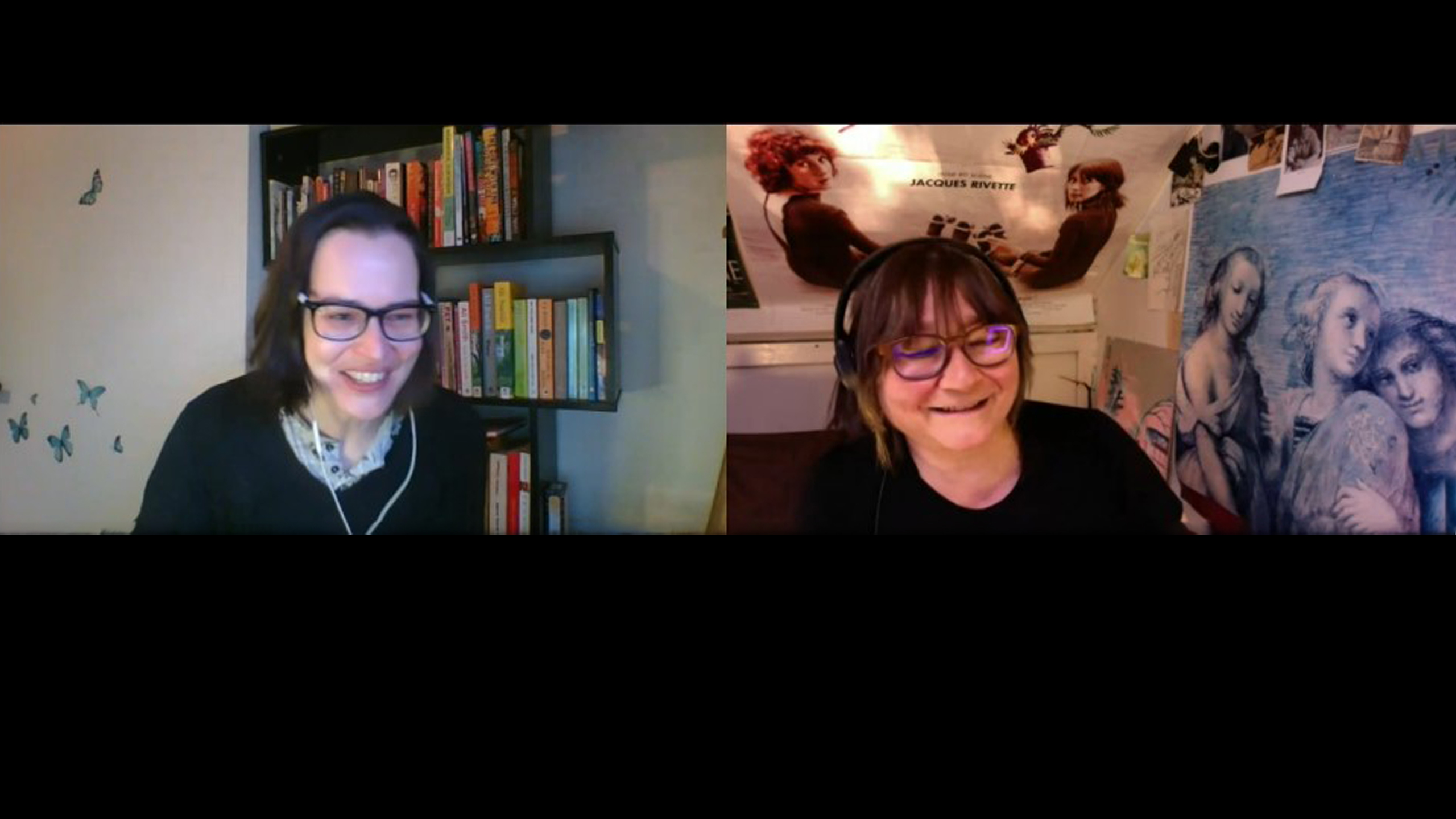‘Space may produce new worlds’ – Ali Smith and Sarah Wood on ‘The New Space Age’
Written exclusively for UEA Live by Olivia Lowden, UEA LDC student
Electronic interference, bird song. Grainy, VCR-style footage of boats and a riverbed. ‘Here’s a joke from the nineteen-seventies’, comes a voice, fluid as water. ‘What do you do if you see a spaceman?’ the voice asks. ‘Park in it, man. I say, I say, I say.’
The New Space Age is a short film broadcast exclusively at the UEA Live literary festival, with the words of Ali Smith given cinematic form by Sarah Wood. As a piece of art, it is both a story and a film, while not being confined to either.
The footage was selected from the East Anglian Film Archive, and then repurposed and given new life. The practice itself acts as a kind of interrogation of the past, which is something the filmmaker Sarah Wood is interested in exploring.
A lot of the early film is dominated by black and white shots of the coast, rivers, and fishermen. There is a bird flying across an empty sky, a dog bounding towards the camera. In the background, birds continue to sing. There is flooding, the violent gushing of water past front doors. And then, surprisingly: Tetris. A moving graphic of the video game, shapes satisfyingly fitting shapes, playing over the top. Then there is colour. Fields, the overwhelming blue of sky. Aeronautical whirring, seaside landscapes. A Space Invaders graphic. Such is the joy and surprise of the The New Space Age, whose visuals serve to underpin the themes of the story.
One cannot help but feel awe at the way life and nature is captured. Sometimes serene, sometimes violent, the film is always concerned with duplicity. Equally, the interplay of old and new saturates the project. The revived, 1940s footage is paired with a new and exclusive story that is gently narrated by Ali Smith herself.
The story is centred around a dispute with a neighbour over a parking space, an incident recognisably banal and frustrating. Someone new to the neighbourhood is parked in the communally owned parking space, which until that moment has stood empty, mostly, for the use of emergency vehicles to access the cramped cul-de-sac. An emergency arises, and a neighbour needs the space free for a plumber with lots of equipment to access her property. It is a sewage issue, and no time is to be spared. But the new neighbour whose car occupies the spot does not wish to comply. Despite the locality of these events, they are the circumstances that offer up a wealth of questions relevant on a global scale.
‘Space meant time until the 18th Century,’ Smith muses. ‘So, I’m not just standing in space, I’m standing in time. Do I own this time? Do we own it communally?’
Space speaks of both the familiar and the frighteningly unfamiliar. It is what we occupy daily, in parking spaces, bus seats, homes. But it also speaks of things distant: the cosmos, outer space. By directly asking who owns ‘space’, Smith explores an issue that is as old as humanity but still an increasing problem today.
More insight is offered by Ali Smith following the film, in a conversation with KR Moorhead where the questions are supplied by students at UEA.
The first question is about a contemporary interest in exploring the ideas of habitation and dwelling as seen in novels like Kamila Shamsi’s Home Fire and Smith’s own novel There But For The, a particularly relevant questions as these themes also feature in The New Space Age.
‘Dwelling is the small question that we’re all having to answer at the moment, and it’s the biggest question that we’re all having to answer at the moment,’ Smith says. The Covid-19 pandemic insists on our globality, while pushing us into isolation more and more. It insists that there are no borders, and we are part of a shared world. How do we navigate this? Smith describes this as an existential question, to which there seems to be no clear answer.
‘Covid has been about space,’ Smith says. ‘It has enforced an anti-community and a community; both things happening at once… The divisions we’ve been having to deal with, not just in this country but all across the world… those things were at the back of this story.’
It was John Donne who first said no man is an island, and the idea is still relevant today. Ali Smith interrogates what this means, exactly, in the modern age, on a scale that is both local and global.

